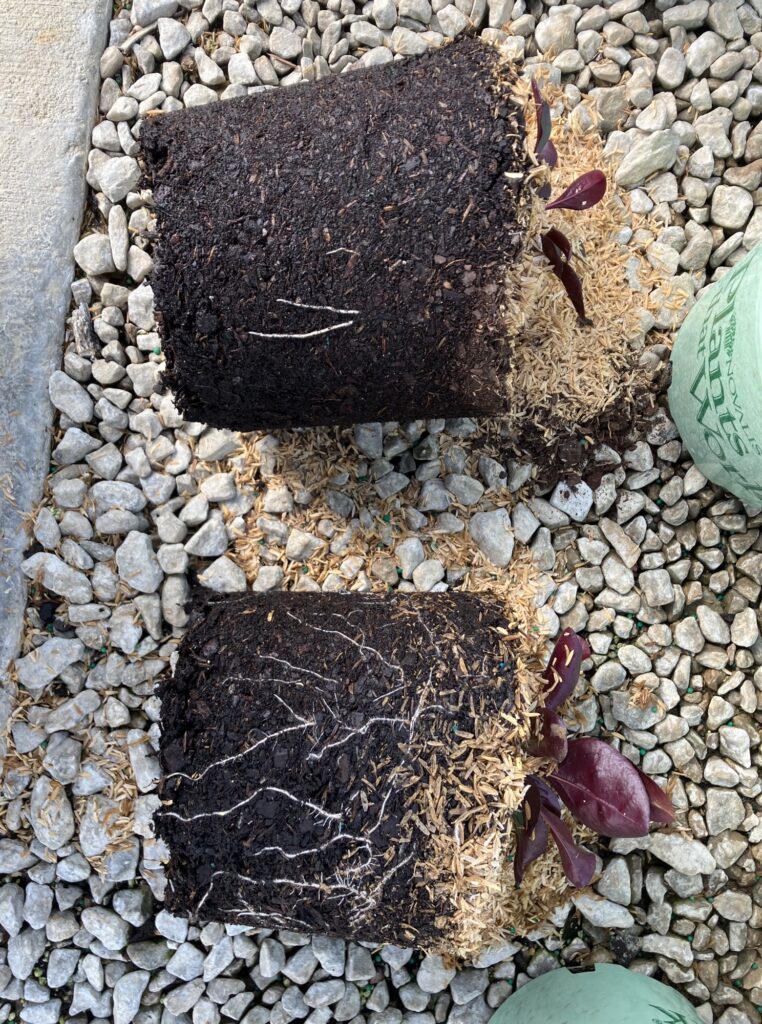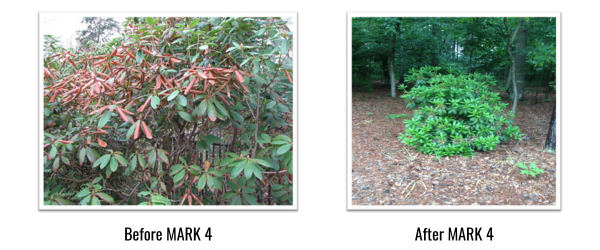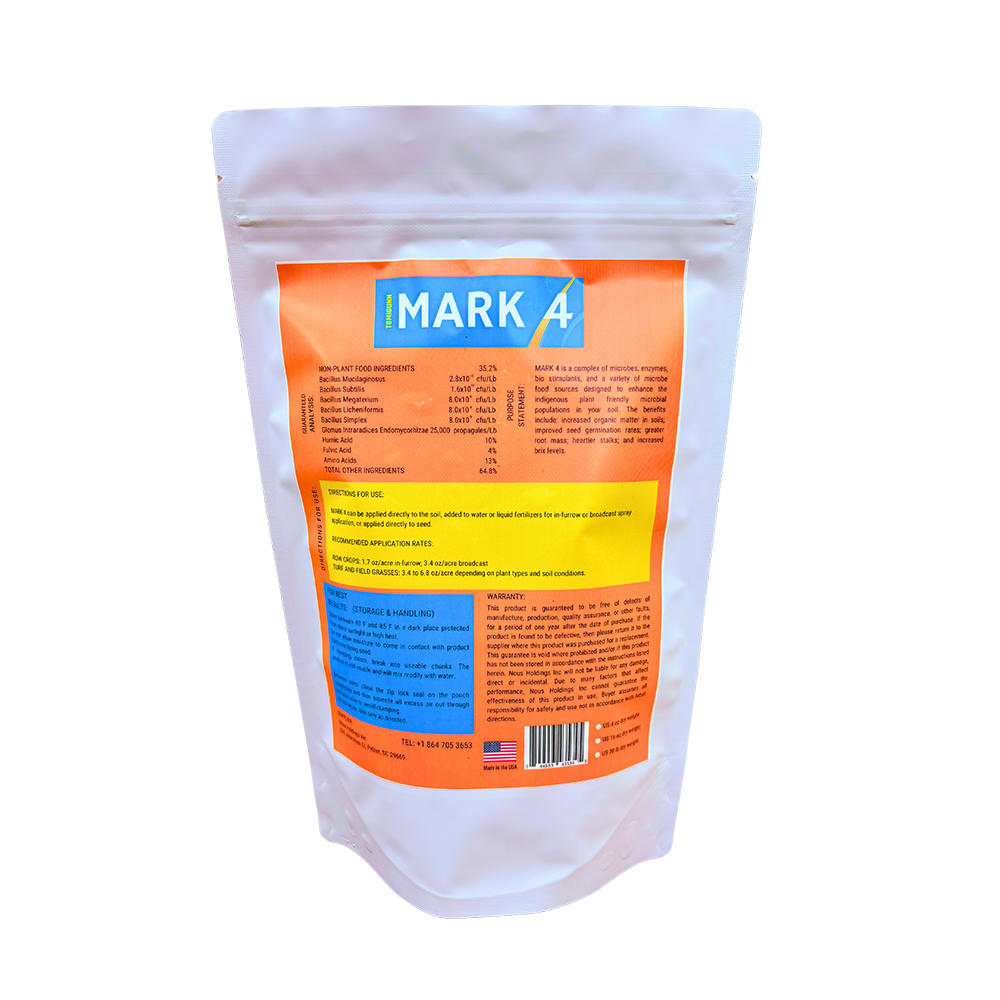Why should I use a microbial additive for my crops?
A broad-spectrum probiotic introduces a wide array of microbial species to the soil, each with unique functions that enhance soil health and crop productivity. These microorganisms include beneficial bacteria, fungi, and other microbial entities that play critical roles in various biogeochemical cycles.
Enhanced Soil Structure
Microbes contribute to the formation of soil aggregates by binding soil particles together. Well-aggregated soil improves porosity and aeration, facilitating better root penetration and water movement.
This enhanced soil structure not only supports healthier plant growth but also increases the soil’s resilience to erosion and compaction, key factors in maintaining long-term soil fertility.

The plant on the bottom, treated with MARK 4 plant microbes, exhibits thicker and more abundant roots, while the untreated plan shows significantly less root growth. MARK 4 enhances root development, promoting healthier and more resilient plants.
Improved Plant Resilience
Hydroponic plants, in particular, grown in environments enriched with diverse microbial populations exhibit enhanced resilience against biotic and abiotic stresses. For example, certain bacteria produce phytohormones that can stimulate plant growth under stress conditions such as drought or salinity.
Additionally, a broad microbial community can outcompete or inhibit the growth of pathogenic organisms through mechanisms like antibiotic production and resource competition. This biocontrol aspect reduces the dependency on chemical pesticides, aligning with sustainable farming practices.

Witness the transformation of a rhododendron facing near death due to phytophthora. Thanks to MARK 4 multiple applications, the plant made a full recovery in the same season.
Sustainable Farming Practices
Utilizing a broad-spectrum probiotic supports sustainable agricultural practices by reducing the need for chemical inputs such as fertilizers and pesticides. These microbes play a pivotal role in the natural recycling of organic matter, which gradually improves soil organic content, enhancing its nutrient-holding capacity and reducing nutrient leaching.
Why should I use a microbial additive in my water?
You should use a microbial additive like TITAN in your pond, lake, or stream when you notice murky or cloudy water, excessive organic buildup, sludge accumulation, foul odors, or signs of nutrient overload such as algae blooms from fertilizer runoff. It is also ideal for preventive maintenance, applying regularly during the warmer months when water temperatures are above 50°F to naturally break down excess nitrogen and phosphorus, restore balance, and promote clearer, healthier water over time.
By fostering a self-sustaining ecosystem within the soil, these practices not only cut down on the environmental footprint of farming but also potentially lower the costs associated with chemical inputs, benefiting both the environment and the farmer’s bottom line.
PRODUCTS

MARK 4
MARK 4 by TOMIGUNN is a complex of microbes, enzymes, bio-stimulants, and a variety of microbe food sources designed to enhance the indigenous plant-friendly microbial populations in your soil.
